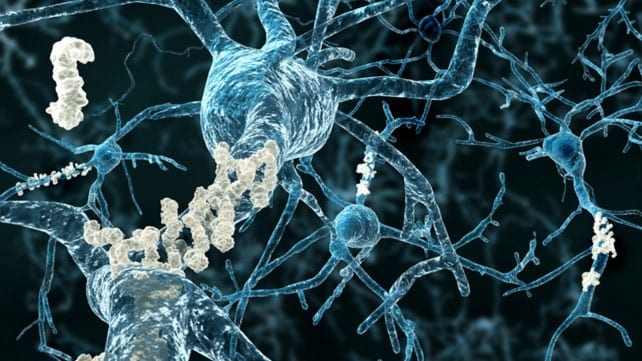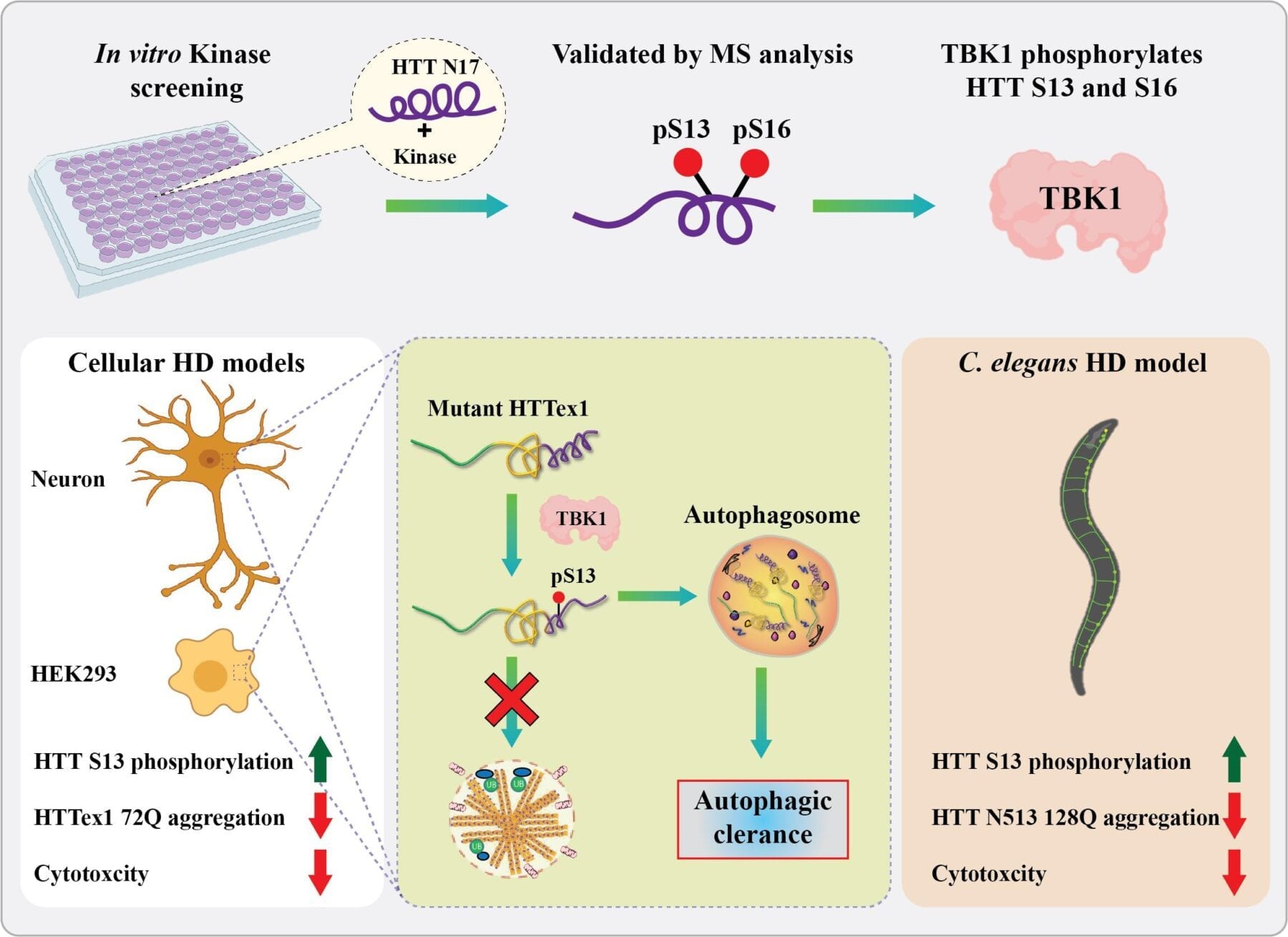
Researchers discover how TBI can lead to Alzheimer’s disease and chronic traumatic encephalopathy
New research led by investigators at Beth Israel Deaconess Medical Center (BIDMC) provides the first direct evidence linking traumatic brain injury to Alzheimer’s disease and chronic traumatic encephalopathy (CTE) — and offers the potential for early intervention to prevent the development of these debilitating neurodegenerative diseases.
TBI can result from repetitive contact sport injuries or from exposure to military blasts, and is one of the most significant risk factors for both Alzheimer’s disease and CTE.
In a study published today in the online edition of the journal Nature, the researchers found that a misshapen isoform of the tau protein can develop as soon as 12 hours after TBI, setting in motion a destructive course of events that can lead to widespread neurodegeneration. Importantly, the researchers have developed a potent antibody that can selectively detect and destroy this highly toxic protein.
“TBI is a leading cause of death and disability in children and young adults and also affects approximately 20 percent of the more than two million troops who have deployed to Iraq and Afghanistan,” said co-senior author Kun Ping Lu, MD, PhD, Chief of the Division of Translational Therapeutics in the Department of Medicine at BIDMC and Professor of Medicine at Harvard Medical School (HMS). “Our study shows that an early neurodegenerative process induced by the toxic tau protein can begin just hours after a traumatic brain injury. In both cell models of stress and in mouse models simulating sport- and military-related TBI, the production of this pathogenic protein, called cis P-tau, disrupts normal neurological functioning, spreads to other neurons and leads to widespread neuronal death. We have developed a potent monoclonal antibody that can prevent the onset of widespread neurodegeneration by identifying and neutralizing this toxic protein and restoring neurons’ structural and functional abilities.”
Alzheimer’s disease is the most common form of dementia in older individuals and currently affects more than 5 million Americans and 30 million people worldwide. Chronic traumatic encephalopathy is a degenerative brain disease associated with a number of neurological symptoms including risk-taking, aggression and depression. CTE can also lead to progressive dementia.
Previous research has shown that abnormal phosphorylation of the tau protein underlies Alzheimer’s and other neurodegenerative diseases. In recent years, the Lu laboratory discovered that tau exists in two isoforms, or shapes –¬ ¬¬one functioning and one disease-causing.
“Healthy tau protein is found in the brain and serves to assemble and support microtubules, the ‘scaffolding systems’ that give neurons their unique shape and are integral to memory and normal brain functioning,” explained Lu. But in Alzheimer’s, CTE and other neurodegenerative diseases, collectively called tauopathies, tau becomes tangled and unable to function properly.
“Recent studies of CTE in the brains of boxers, American football players and blast-exposed veterans have identified extensive neurofibrillary tau tangles,” he said. “But, because these tangles were not detected until months or, more likely, years after TBI, it has not been known whether tauopathy is a cause or a consequence of TBI-related neurodegenerative disease. We have now shown that it is a cause of these diseases.”
The Latest on: Neurodegeneration antibody
[google_news title=”” keyword=”Neurodegeneration antibody” num_posts=”10″ blurb_length=”0″ show_thumb=”left”]
via Google News
The Latest on: Neurodegeneration antibody
- This AI Just Designed a More Precise CRISPR Gene Editor for Human Cells From Scratchon April 25, 2024 at 1:25 pm
Based on large language models—the tech behind the popular ChatGPT—Profluent's AI designed a new gene editor and put it to work in human cells.
- Can supplements really help prevent dementia?on April 23, 2024 at 8:35 am
By 2025, it’s estimated that over one million people in the UK will have a diagnosis of dementia. It’s a sobering thought, but new research suggests that 40 per cent of these cases could be delayed or ...
- Autoantibodies Predict Multiple Sclerosis Years in Advanceon April 22, 2024 at 3:14 am
Researchers have identified a biomarker that reveal the development of multiple sclerosis (MS), years in advance. | Clinical And Molecular Dx ...
- Fibrin Immunotherapy’s Potential for Treating Traumatic Brain Injuryon April 22, 2024 at 1:05 am
Traumatic brain injuries come with an amplified risk for developing dementia, but a new therapeutic target and a potential immunotherapy have been identified.
- Battle against fatal neurodegenerative disease advances on two frontson April 19, 2024 at 11:13 am
Given no more than five years to live, Blais set about ticking off his final bucket-list challenge: the annual "Ironman World Championship" in the US state of Hawaii. In October 2005, six months after ...
- Study reveals novel therapeutic target for traumatic brain injuryon April 19, 2024 at 10:32 am
Health outcomes vary greatly among the approximately 1.5 million Americans who survive a traumatic brain injury each year. Not only can these injuries cause loss of coordination, depression, ...
- A new therapeutic target for traumatic brain injuryon April 19, 2024 at 9:39 am
For the roughly 1.5 million Americans per year who survive a traumatic brain injury, health outcomes vary widely. Not only can these injuries lead to a loss of coordination, depression, impulsivity, ...
- Cognition Therapeutics: Approaching Phase 2 Readout In Alzheimer'son April 18, 2024 at 3:56 pm
Cognition's preliminary data from the SHINE trial showed interesting results, but weren't consistent with other previous studies. See why CGTX stock is a sell.
- Mobilizing Microglia in the Fight Against Alzheimer’s Diseaseon April 18, 2024 at 7:15 am
Recently approved Alzheimer's drugs work by tagging amyloid plaques for clearance by the brain's microglia. Washington University School of Medicine in St. Louis researchers are developing an ...
- Inflammation among current dementia research focus, says Alchemab CSOon April 18, 2024 at 7:08 am
Inflammation, cell metabolism and neuronal health are current key areas of focus for dementia researchers, according to Jane Osbourn, chief scientific officer (CSO) at Alchemab.
via Bing News










